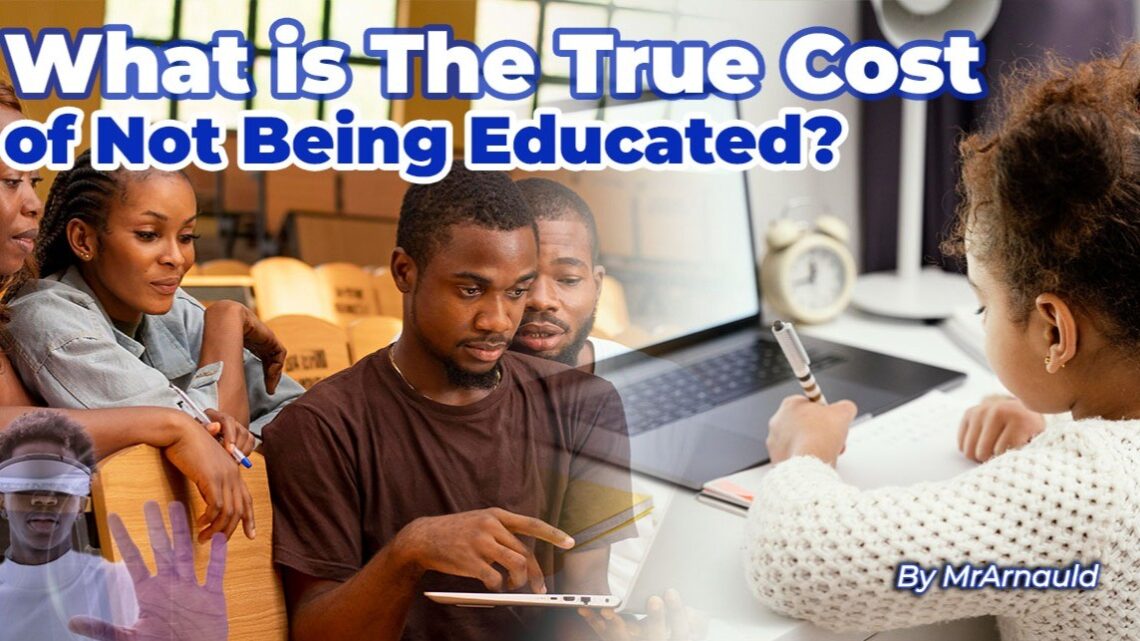
Last week, I went through an experience I wouldn’t wish on anyone—I was attacked and robbed by armed bandits. Thankfully, nothing happened to me physically, but I lost some material possessions.
As I reflected on the incident, I remembered something Ray Dalio said in an interview I watched years ago. He asked: What is the real cost of education?
At first, most of us think about school fees or the expenses families face when sending a child to school. But Dalio reframed the question: What is the cost of not being educated?
When a population lacks access to quality education, the social costs go up, such as crime, unemployment, prostitution, higher spending on law enforcement, and insecurity. All these drag down society. The government spends more on controlling crime than on educating its people. Families suffer. 𝘿𝙧𝙚𝙖𝙢𝙨 𝙖𝙧𝙚 delayed. Meanwhile, an educated population would mean more innovation, higher incomes, better health, stronger communities—and even increased tax revenue.
When I look around—at my community, at Africa—I see the consequences of low educational access every day. Here are some numbers that break my heart and should move us to action: In sub-Saharan Africa, more than 1 in 5 children aged 6-11 are out of school (UNESCO UIS). For youth aged 15-17, nearly 60% are not attending school (UNESCO UIS). There are over 93 million children of primary and secondary school age out of school in this region, and many will never set foot in a classroom (UNESCO UIS).
Thinking about the young men who attacked me, I couldn’t help but imagine what they might have become if they had access to proper education. They were around my age. With the right opportunities, they could have been doctors, teachers, engineers, athletes, entrepreneurs, or even the next Elon Musk, Ray Dalio, Aliko Dangote, or Samuel Eto’o. Instead, society lost that potential, and they chose a path that hurts both themselves and the community.
Africa is full of untapped brilliance—young minds who could solve tomorrow’s greatest problems. But for this to happen, we need stronger investment in education. Governments must build infrastructure and policies that make learning accessible to all. The private sector must also step in, even if the education sector doesn’t look like the “sexiest” investment compared to others. 𝘽𝙚𝙘𝙖𝙪𝙨𝙚 𝙩𝙝𝙚 𝙩𝙧𝙪𝙩𝙝 𝙞𝙨, 𝙖𝙣 𝙚𝙙𝙪𝙘𝙖𝙩𝙚𝙙 𝙨𝙤𝙘𝙞𝙚𝙩𝙮 𝙗𝙚𝙘𝙤𝙢𝙚𝙨 𝙖 𝙨𝙩𝙧𝙤𝙣𝙜𝙚𝙧 𝙚𝙘𝙤𝙣𝙤𝙢𝙮. 𝙏𝙤𝙙𝙖𝙮’𝙨 𝙡𝙚𝙖𝙧𝙣𝙚𝙧𝙨 𝙖𝙧𝙚 𝙩𝙤𝙢𝙤𝙧𝙧𝙤𝙬’𝙨 𝙘𝙤𝙣𝙨𝙪𝙢𝙚𝙧𝙨, 𝙞𝙣𝙣𝙤𝙫𝙖𝙩𝙤𝙧𝙨, 𝙖𝙣𝙙 𝙡𝙚𝙖𝙙𝙚𝙧𝙨.
As someone who is a lifelong learner and educator, I’ve seen firsthand the positive impact education can have—not only in my life but in the lives of my students. That is why I believe investing in education is not optional; it is essential.
As you go about your daily activities, I encourage you to stay safe, support education in any way you can, and continue showing love and compassion in your communities. At the end of the day, that is what truly matters.